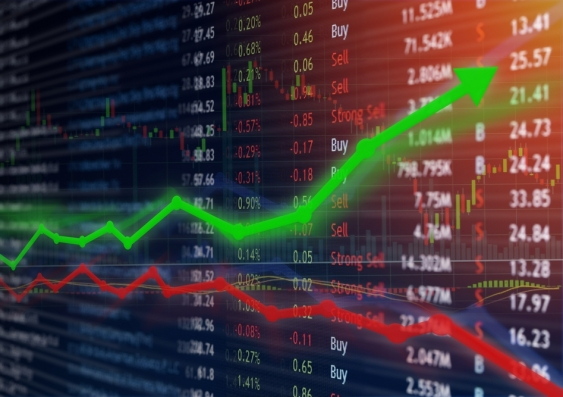Hong Kong's Stock Market: Navigating the Choppy Waters of Uncertainty
Meta Description: Dive deep into the recent downturn in the Hong Kong stock market, understanding the factors driving the dip and exploring strategies for navigating this volatile landscape.
The Hong Kong stock market, once a beacon of stability and growth, has recently been caught in a whirlpool of uncertainty. The Hang Seng Index, a benchmark for the Hong Kong Stock Exchange, has experienced a significant decline, signaling a growing concern among investors. This downturn, while undoubtedly concerning, is not unexpected. It's a reflection of the complex interplay of global economic forces, geopolitical tensions, and domestic market dynamics.
Stepping into the shoes of an investor during such a time can feel like navigating a perilous journey through a fog-laden sea. The questions arise: What are the underlying factors contributing to this market volatility? How can investors navigate this turbulent terrain and protect their investments? This article serves as a compass, guiding you through the intricacies of the Hong Kong stock market, offering insights into the current situation, and providing practical strategies for investors seeking to weather the storm.
Understanding the Current Market Situation: A Deep Dive into the Hang Seng Index
The Hang Seng Index, a widely-followed gauge of the Hong Kong Stock Exchange, has been signaling a bearish trend, reflecting the broader sentiment in the market. The recent downturn, though significant, is not an isolated incident. It's a culmination of various factors, both internal and external, that are contributing to a sense of unease and volatility.
Factors Contributing to the Decline:
- Global Economic Headwinds: The global economy is currently facing a number of headwinds, including the lingering impact of the pandemic, rising inflation, and aggressive interest rate hikes by central banks. These factors are impacting global growth prospects, leading to a risk-off sentiment among investors.
- Geopolitical Uncertainty: Geopolitical tensions, particularly between the US and China, are adding to market uncertainty. The ongoing trade war and heightened tensions in the Taiwan Strait are creating a volatile environment for investors.
- Domestic Challenges: Hong Kong's economy is facing its own set of challenges, including the ongoing property market downturn, the impact of COVID-19, and slower-than-expected economic growth. These factors are weighing on investor sentiment.
Analyzing the Numbers:
- Hang Seng Index Performance: The Hang Seng Index has experienced a significant decline in recent months, shedding over 10% of its value. This indicates a growing concern among investors about the future direction of the Hong Kong stock market.
- Sector-Specific Trends: The technology sector, often considered a growth driver, has been particularly hard hit, with the Hang Seng Tech Index experiencing a sharper decline compared to the broader index. This reflects the global slowdown in technology investments and increasing regulatory scrutiny of the sector in China.
Navigating the Volatility:
- Diversification: Diversifying your portfolio across different asset classes, sectors, and geographies can help mitigate the impact of market volatility.
- Long-Term Perspective: It's crucial to remember that market cycles are cyclical. Investing with a long-term perspective and staying focused on your investment goals can help you ride out short-term fluctuations.
- Seeking Professional Advice: Consulting with a financial advisor can provide valuable insights and guidance, especially during volatile market periods.
Key Takeaways:
- The recent decline in the Hang Seng Index reflects a complex interplay of global economic concerns, geopolitical tensions, and domestic market dynamics.
- Navigating this volatile market requires a strategic approach, including diversifying your portfolio, maintaining a long-term perspective, and seeking professional advice.
- While the current market scenario presents challenges, it also presents opportunities for investors with a well-defined strategy and a willingness to ride out the storm.
Common Questions and Answers (FAQs)
Q1: Is this downturn a sign of a larger market crash?
A: It's impossible to predict the future, but it's important to remember that market corrections are a normal part of the investment cycle. While the current downturn is significant, it's important to avoid panic selling and to consider the long-term investment horizon.
Q2: Should I sell my stocks and wait for the market to rebound?
A: Selling during a market decline can lock in losses. The best approach is to evaluate your individual investment goals and risk tolerance, and to consider seeking advice from a financial advisor.
Q3: Which sectors are likely to be most affected by the current market situation?
A: The technology sector has been particularly hard hit, due to its sensitivity to global economic growth and regulatory changes. Other sectors, such as real estate and consumer discretionary, are also facing challenges.
Q4: Should I invest in Hong Kong stocks now?
A: The decision to invest in Hong Kong stocks depends on your individual circumstances, risk tolerance, and investment goals. It's important to conduct thorough research and consider the risks involved before making any investment decisions.
Q5: What should I do if I'm concerned about my investments?
A: If you're concerned about your investments, it's important to reach out to your financial advisor and review your portfolio. They can help you assess your risk tolerance, make adjustments if necessary, and provide guidance on navigating the current market situation.
Q6: What are the potential opportunities in the Hong Kong stock market?
A: While the market is facing challenges, there are still potential opportunities for investors with a long-term perspective. For example, the decline in valuations may create opportunities for value investors to find undervalued companies.
Conclusion:
The Hong Kong stock market is currently navigating a turbulent landscape, but with a clear understanding of the factors driving the current situation and a well-defined investment strategy, investors can navigate the volatility and potentially emerge stronger. Remember, market downturns are an inevitable part of the investment cycle, and they often create opportunities for those with a long-term perspective. By staying informed, diversifying your portfolio, and seeking professional advice, you can weather the storm and emerge with a strong investment portfolio.



